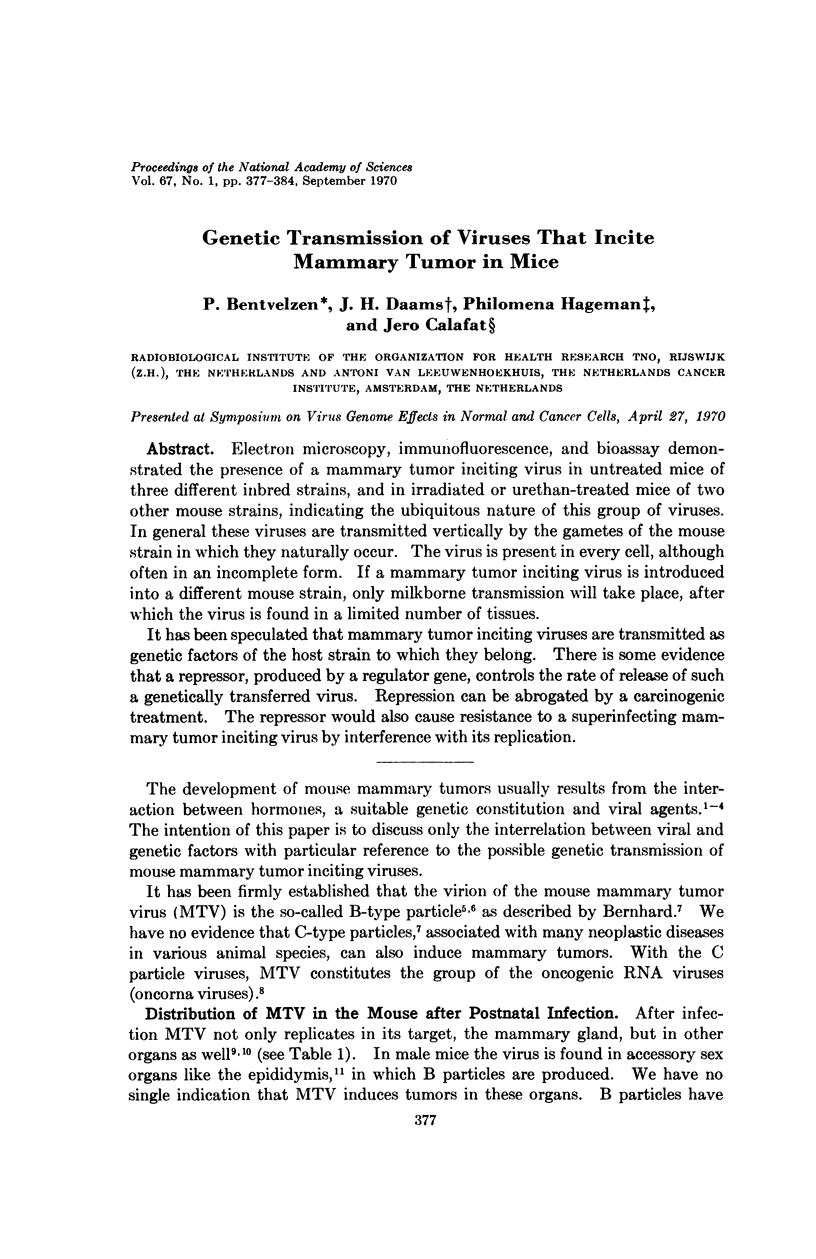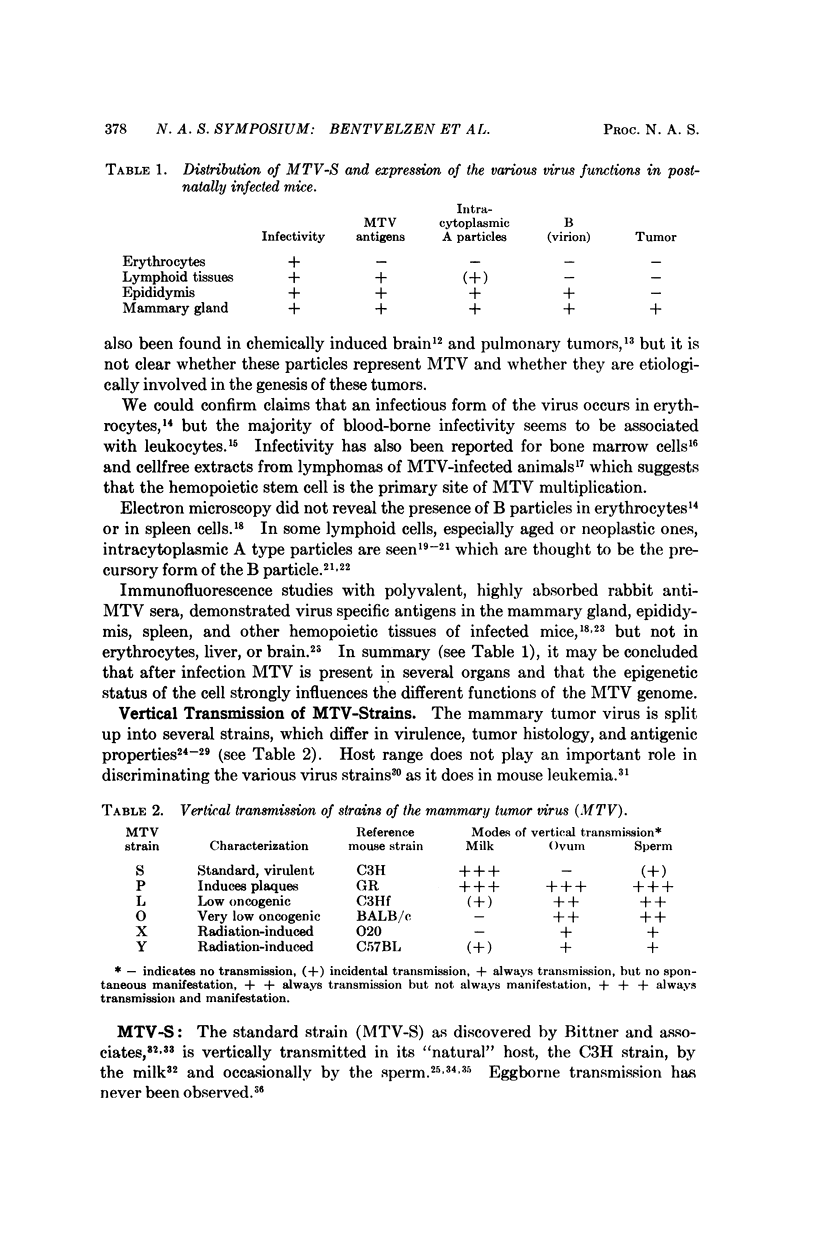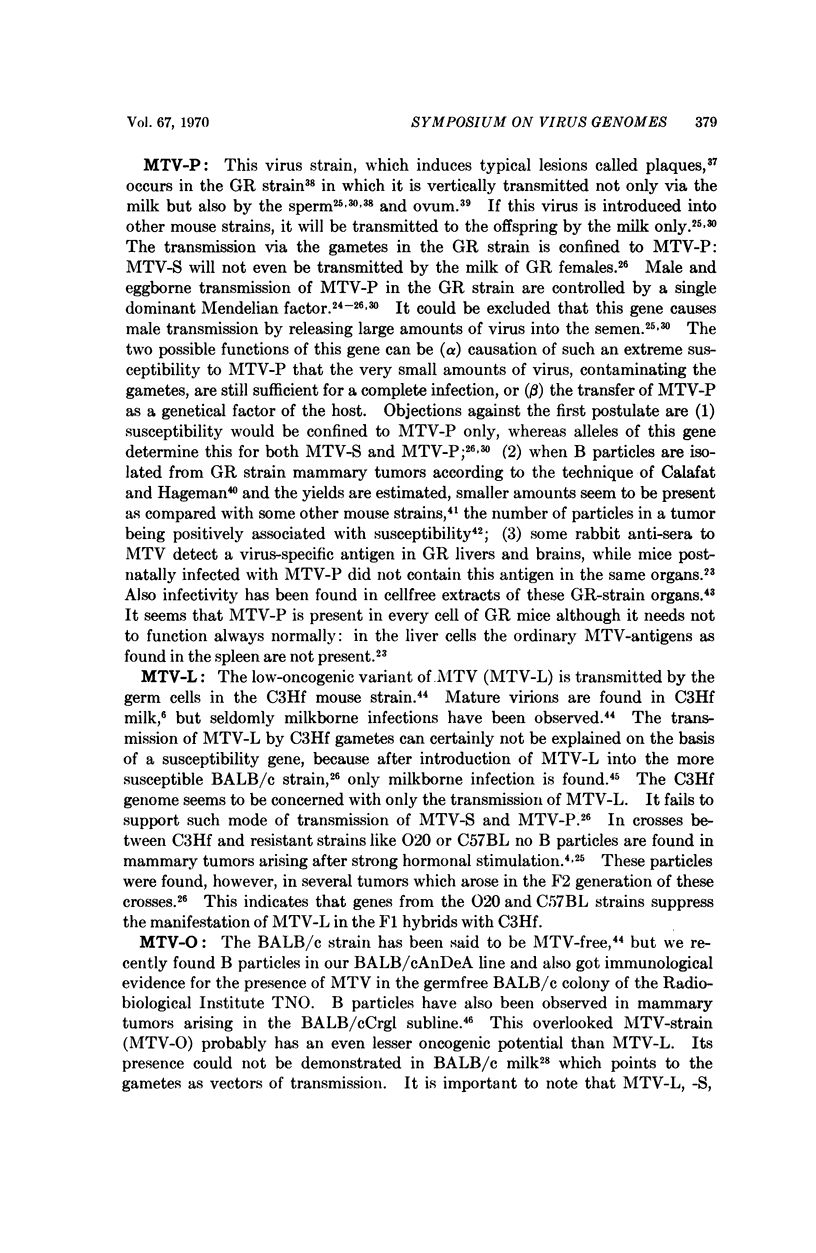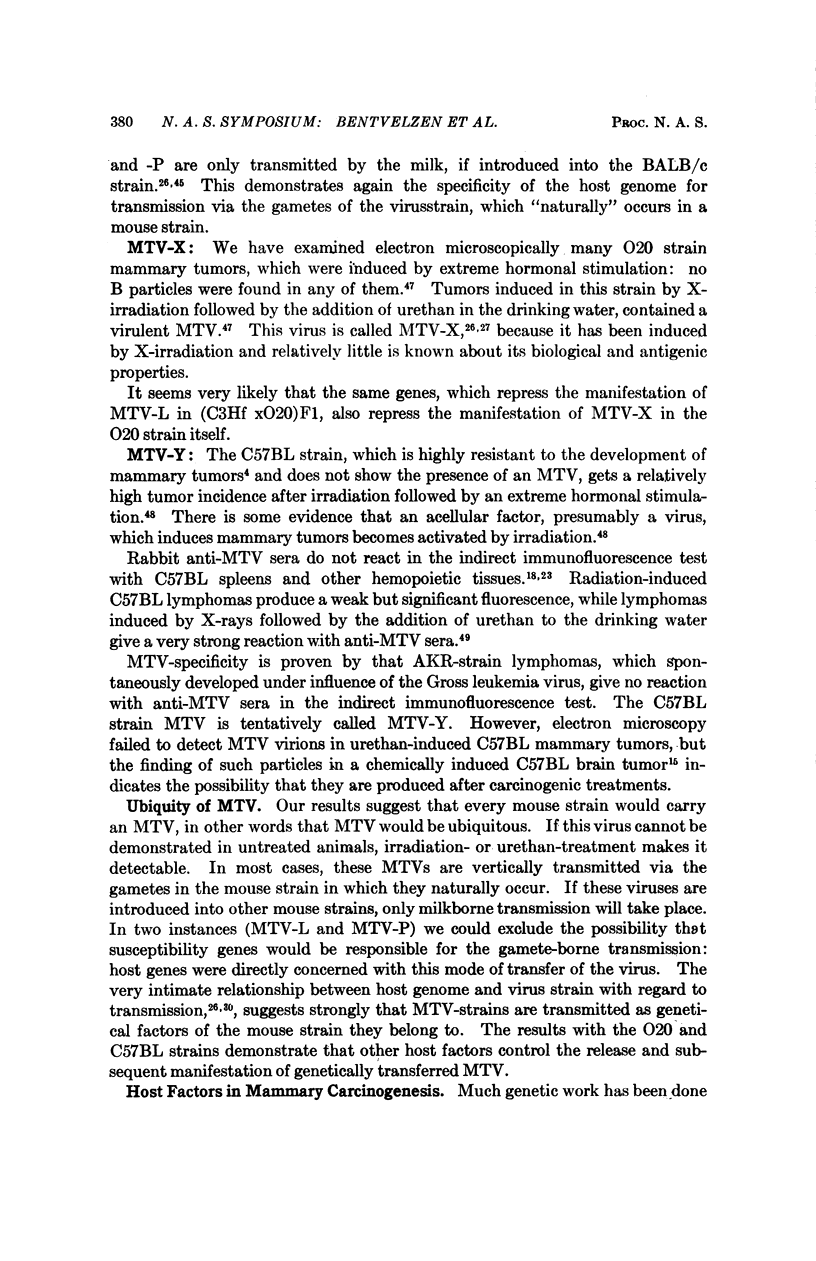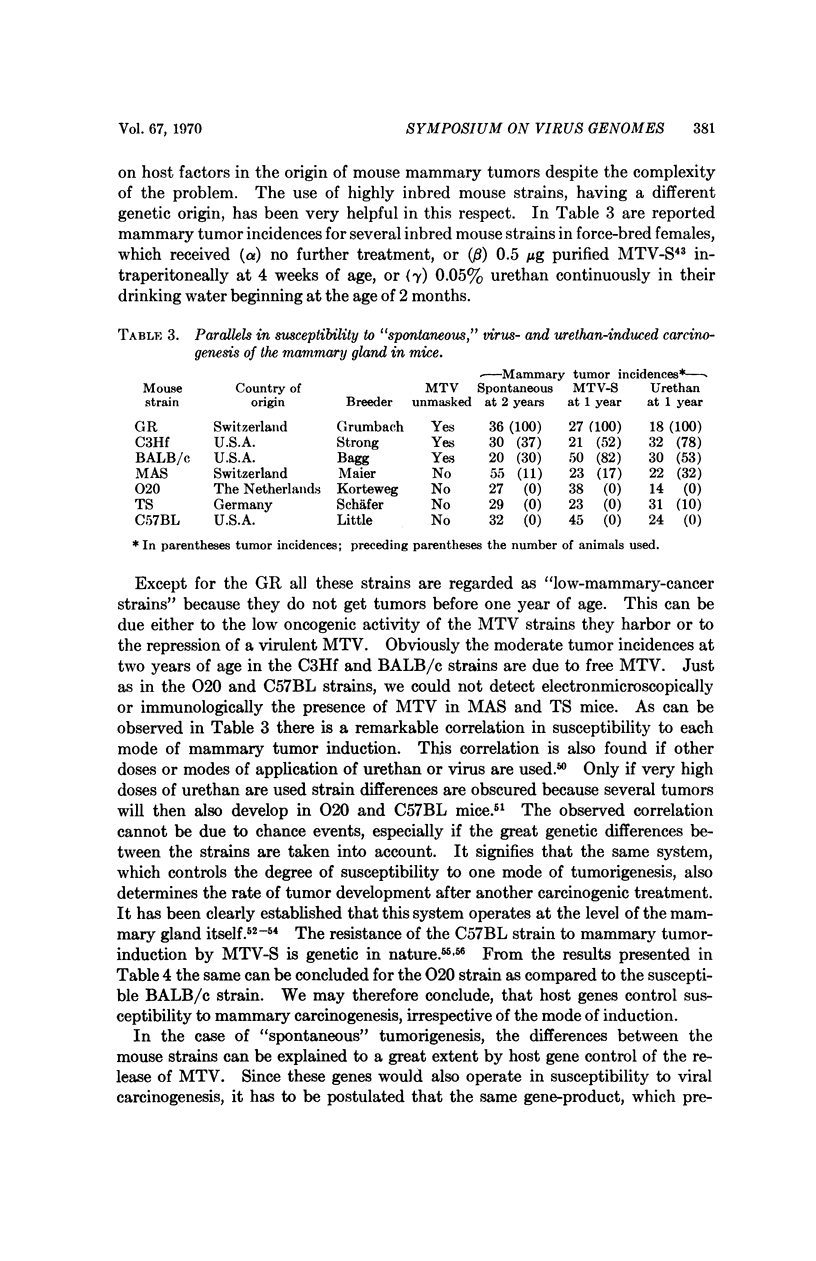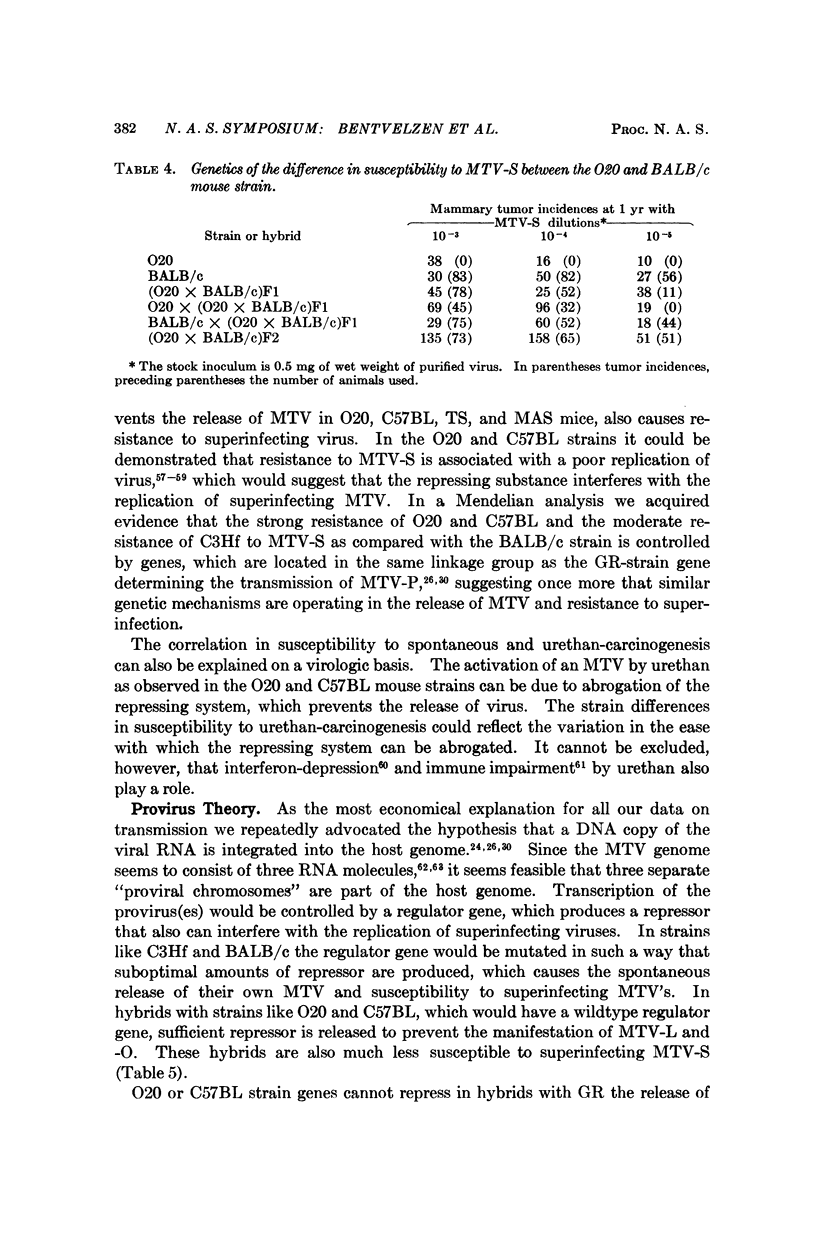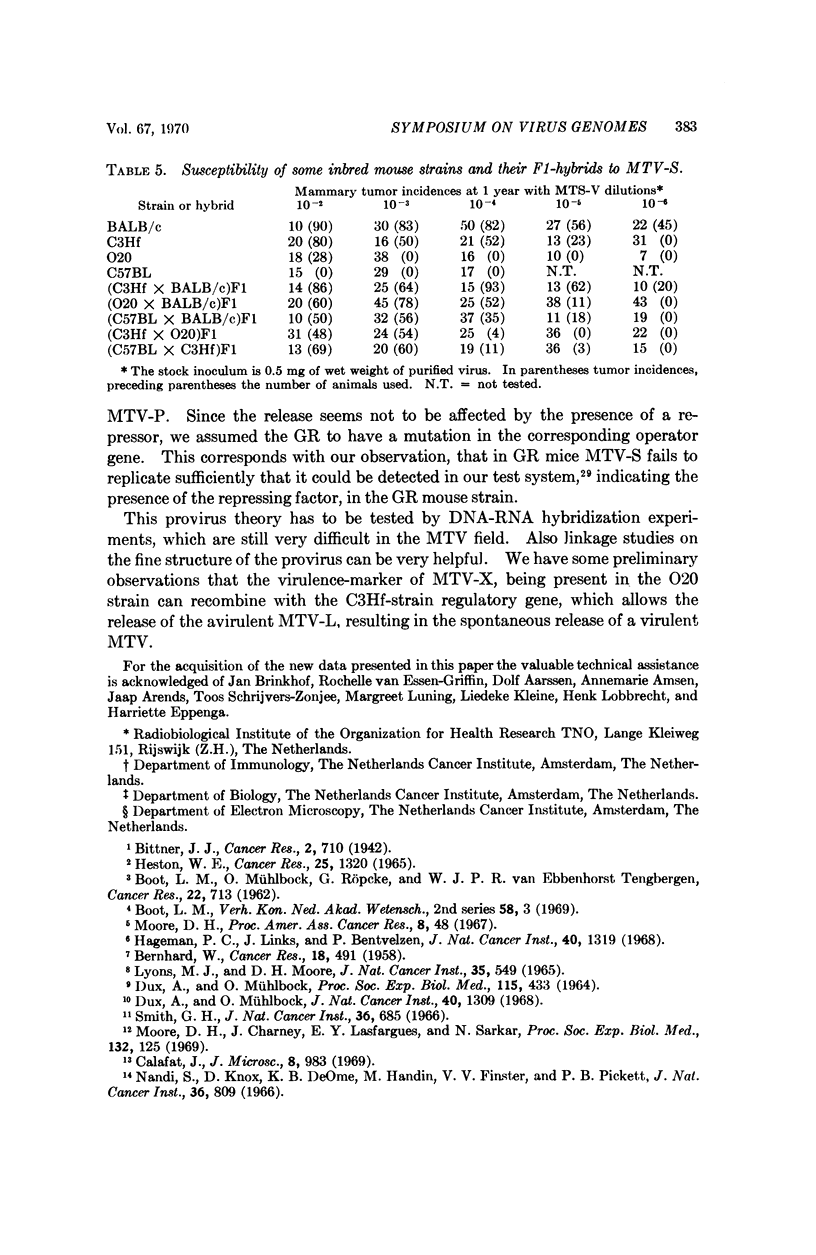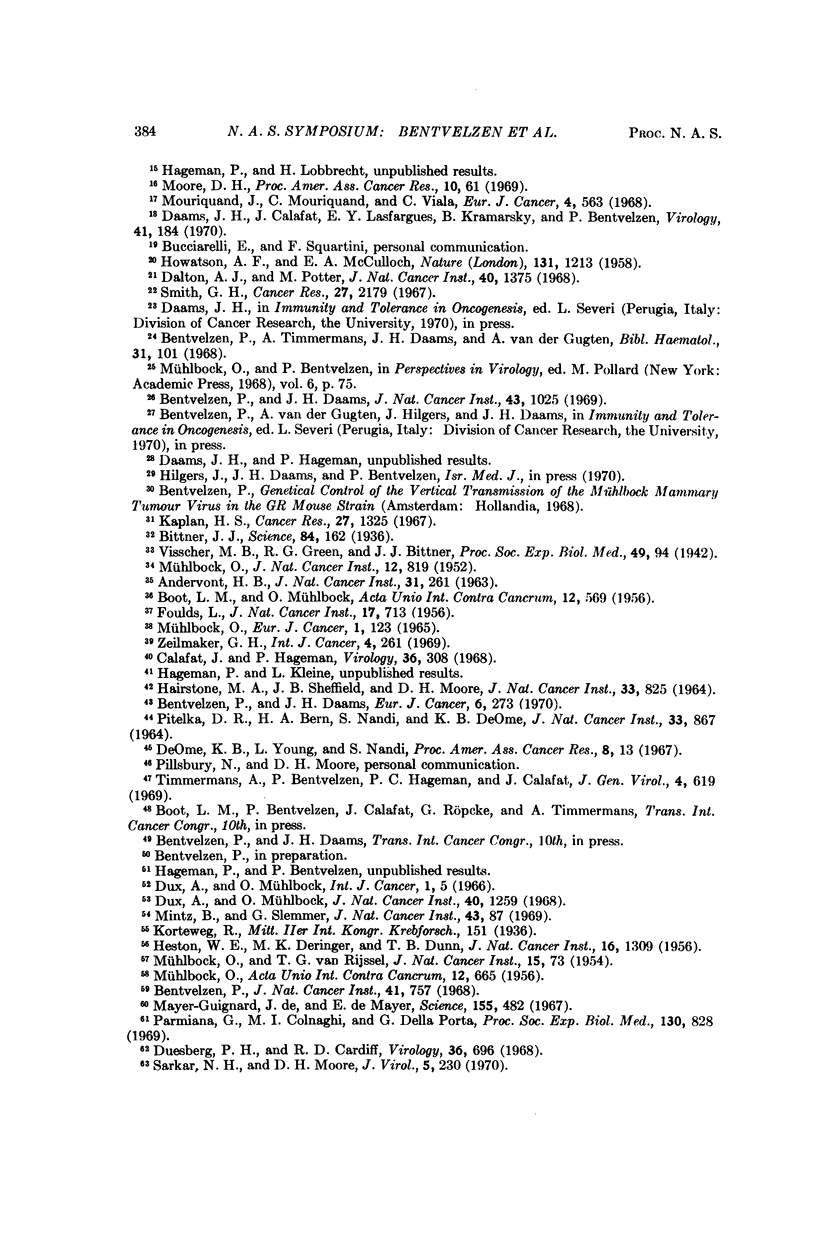Abstract
Electron microscopy, immunofluorescence, and bioassay demonstrated the presence of a mammary tumor inciting virus in untreated mice of three different inbred strains, and in irradiated or urethan-treated mice of two other mouse strains, indicating the ubiquitous nature of this group of viruses. In general these viruses are transmitted vertically by the gametes of the mouse strain in which they naturally occur. The virus is present in every cell, although often in an incomplete form. If a mammary tumor inciting virus is introduced into a different mouse strain, only milkborne transmission will take place, after which the virus is found in a limited number of tissues.
It has been speculated that mammary tumor inciting viruses are transmitted as genetic factors of the host strain to which they belong. There is some evidence that a repressor, produced by a regulator gene, controls the rate of release of such a genetically transferred virus. Repression can be abrogated by a carcinogenic treatment. The repressor would also cause resistance to a superinfecting mammary tumor inciting virus by interference with its replication.
Full text
PDF